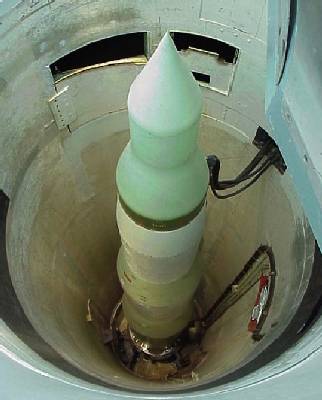 Wikileaks is to release 3 million confidential diplomatic communiques. Some of these cables had to stay confidential… Especially those depicting in an “unflattering” manner some Russian officials.
Wikileaks is to release 3 million confidential diplomatic communiques. Some of these cables had to stay confidential… Especially those depicting in an “unflattering” manner some Russian officials.
Frantic behind the scenes wrangling was under way last night as US officials tried to stem the fallout from the expected release of up to three million confidential diplomatic communiques by the Wikileaks website. Over the past 48 hours, American ambassadors have had the unenviable task of informing some of the country’s strongest allies that a series of potentially embarrassing cables are likely to be released in the coming days.
The latest tranche of documents, described by Wikileaks as being seven times as large as its last exposé – the 400,000 secret war logs from Iraq that were published last month – are thought to be cables taken from SIPRNet, the Pentagon’s global secret-level computer network which is accessible online for those with clearance.
US officials say the publication of such reports, which often contain candid assessments from embassy staff and ambassadors about foreign governments and leaders, has the potential to harm relations between Washington and its allies.
Downing Street yesterday confirmed that the US ambassador in London had already briefed the Government on what might be contained in the files. Similar meetings were also reported in Turkey, Israel, Canada, Denmark, Norway and Australia.
Wikileaks has made no official confirmation other than through brief messages posted on its Twitter page claiming that the Pentagon was “hyperventilating again over fears of being held to account”. It is not clear whether the whistle-blowing website will black-out the names of people who might face persecution if they were known to be co-operating with American embassies abroad.
A source at Wikileaks said that the website was “proceeding with caution, as always” with regard to the details it would put into the public domain, suggesting that some form of redaction would be used. But US officials have nonetheless reacted angrily, arguing that any publication of the cables would make diplomacy in sensitive parts of the world much more difficult.
“WikiLeaks are an absolutely awful impediment to my business, which is to be able to have discussions in confidence with people,” said James Jeffrey, US ambassador to Baghdad. “I do not understand the motivation for releasing these documents. They will not help, they will simply hurt our ability to do our work here.”
Early indications suggest the communiqués – thought to be from the last five years – could be a major source of embarrassment both for Washington and its allies, shining a light on the kind of candid opinions and policies that governments like to keep secret. Quoting a Wikileaks “administrator”, the London-based Arabic newspaper Al-Hayat said some of the cables suggested that Turkey had been turning a blind eye to fighters from the group Al-Qa’ida in Iraq slipping across into Turkey from the south.
According to the same report, separate cables also reveal that Washington has been allowing fighters from the Kurdish separatist group the PKK safe havens in northern Iraq to stage attacks on Turkey. Sources familiar with the US State Department reports told Reuters that some of the missives are thought to contain allegations against politicians in Russia, Afghanistan and other Central Asian nations.
The Russian daily business newspaper Kommersant said that the cables will contain general assessments of the political situation in Russia and “unflattering characteristics” of Russian leaders. Italy’s Foreign Minister, Franco Frattini, also admitted yesterday during a Cabinet meeting in Rome that the Wikileaks documents could have “negative repercussions” on the country’s embattled Prime Minister Silvio Berlusconi.
That Wikileaks is in possession of the secret communications has been suspected by US officials ever since Army intelligence analyst Bradley Manning was arrested six months ago on charges of leaking confidential information to the whistleblowing website. In an online chat with former hacker Adrian Lamo, who eventually turned Manning in to the authorities, the Iraq-based analyst boasted how he had handed over a cache of secret foreign policy documents that revealed “almost-criminal political back dealings” by US officials.
In the online chat made available by Lamo, Manning added: “Hillary Clinton and several thousand diplomats around the world are going to have a heart attack when they wake up one morning, and find an entire repository of classified foreign policy is available, in searchable format, to the public.” Wikileaks founder Julian Assange has always denied receiving any information from Manning, although the website has campaigned for his release from detention.
 The group of ten Russian spies arrested last June in the US by the FBI and later deported to Russia in a spy exchange was revealed by Moscow last week to have been betrayed by a high-ranking double agent in the Foreign Security Service (SVR)– the successor of the First Main Directorate of the KGB, known as PGU.
The group of ten Russian spies arrested last June in the US by the FBI and later deported to Russia in a spy exchange was revealed by Moscow last week to have been betrayed by a high-ranking double agent in the Foreign Security Service (SVR)– the successor of the First Main Directorate of the KGB, known as PGU. Is it the end of the cold war? Or another sign of a diplomatic meltdown between Russia and the United States. Anihow, NATO’s top military and political officials assured Russia the alliance saw no threat from the country for the West, Russia’s envoy to NATO Dmitry Rogozin said on Monday.
Is it the end of the cold war? Or another sign of a diplomatic meltdown between Russia and the United States. Anihow, NATO’s top military and political officials assured Russia the alliance saw no threat from the country for the West, Russia’s envoy to NATO Dmitry Rogozin said on Monday.